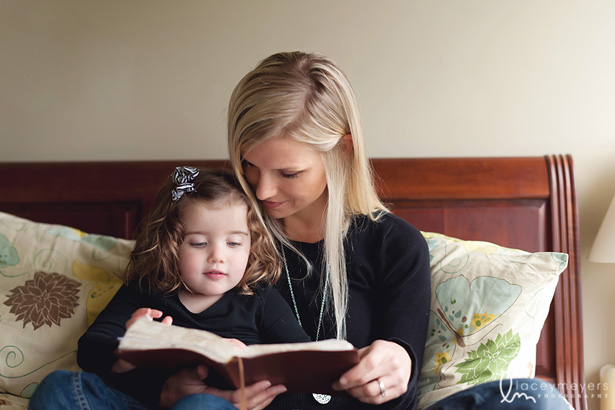Gift-Giving Guide 2012
The kids were quiet in the backseat, worn out from a long day of playing, as we drove home from the Civil War party at Mom & Dad’s. The newspaper lay on the floor of the car, so pulled it up and flipped through its pages. One section caught my eye:
Gift-Giving Guide 2012
I was curious. Since I’m a goat-giver and believe a few chickens bring holiday cheer, I was interested what “the experts” would list as the best gifts of 2012.
It was exactly what I suspected. Lots of Uggs, gadgets, and dog-sweaters.
I said to Jeff, Surely there’s something better than this?
There is. It was waiting in my inbox when I got home.
My brother wrote an extensive Gift-Giving Guide for making wise, informed, and strategic charitable donations. Yes! This is exactly what I wanted. Basically, my brother is a genius at taking things I don’t understand (and don’t have time to research and try to understand) and breaking it down to understandable information I can assimilate and make (relatively) informed decisions.
So, I share with you, in parts, each Friday from now to Christmas:
Gift-Giving Guide 2012
Question: I know I am supposed to be generous to the poor, but there are a ton of different charities out there. What is the best place we can give our money?
This is a wonderful question to ask. In 1 Corinthians 13, Paul said, “If I give away all I have, and if I deliver up my body to be burned, but have not love, I gain nothing. ” The love Paul is talking about is “agape”, which is the love where we look for the best for others, as if it was our self. Paul is saying that if we give based on our own self-interest without making any effort to actually benefit someone with our giving (and certainly there are ways to give that can even harm others), then our giving has no gain. So I believe this question of where to give in order to bless others most , moves exactly in the direction that Paul is commending us toward with our giving.
Likewise, Hosea 6:6 says “For I desire mercy, not sacrifice”. Again, the goal of our giving isn’t our ourselves, and our own sacrifice, it is to bring benefit to others. This is a compelling statement on how we approach giving.
If all charities were equal in their impact, this question may not be that interesting. However, I believe that the difference between one charity and another can easily be 5, 10, or even 100 times the impact. This can be encouraging. Someone who has an income $50,000 and commits to giving away 10% to the poor, and makes an intelligent and wise selection of recipients by investing some time in research can easily have a bigger impact than a millionaire who gives away the same percentage of their income. We have incredible opportunity to make an impact, even if we aren’t super wealthy, when we make smart investments.
This giving guide is intended to provide an objective analysis of different types of charitable activities, then recommend types of charitable projects that benefit the poor the most per dollar given.
First, there are different goals we can pursue in our giving, based on our values. Here are several questions to ask, that will guide you to the best donation choice:
- Do you want your donation to result in an immediate benefit to someone, or would you prefer for it be an investment that may not do as much right now, but could reap much larger benefits years from now?
- Do you want to save a few lives, or improve the quality of life for a large number of people?
- If quality of life, what is most important: Having food, being healthy, having freedom, or something else?
- Do you want proven programs, or unproven (but potentially more beneficial) efforts?
- Do you want the donation to be directly from yourself, or use it to push others to give?
- Do you want to donate only to Christian organization, or any organization?
I pray these questions can be helpful to you as you consider how to bless others in Jesus’ name this season. Thanks so much for reading!
On wholeness, CS Lewis, and paint colors.
“There are three kinds of people in the world.
The first class is of those who live simply for their own sake and pleasure, regarding Man and Nature as so much raw material to be cut up into whatever shape may serve them.
In the second class are those who acknowledge some other claim upon them—the will of God, the categorical imperative, or the good of society—and honestly try to pursue their own interests no further than this claim will allow. They try to surrender to the higher claim as much as it demands, like men paying a tax, but hope, like other taxpayers, that what is left over will be enough for them to live on. Their life is divided, like a soldier’s or a schoolboy’s life, into time “on parade” and “off parade,” “in school” and “out of school.”
But the third class is of those who can say like St Paul that for them “to live is Christ.” These people have got rid of the tiresome business of adjusting the rival claims of Self and God by the simple expedient of rejecting the claims of Self altogether. The old egoistic will has been turned round, reconditioned, and made into a new thing. The will of Christ no longer limits theirs; it is theirs. All their time, in belonging to Him, belongs also to them, for they are His.
And because there are three classes, any merely twofold division of the world into good and bad is disastrous. It overlooks the fact that the members of the second class (to which most of us belong) are always and necessarily unhappy. The tax which moral conscience levies on our desires does not in fact leave us enough to live on …
The price of Christ is something, in a way, much easier than moral effort—it is to want Him. It is true that the wanting itself would be beyond our power but for one fact. The world is so built that, to help us desert our own satisfactions, they desert us. War and trouble and finally old age take from us one by one all those things that the natural Self hoped for at its setting out. Begging is our only wisdom, and want in the end makes it easier for us to be beggars. Even on those terms the Mercy will receive us.” (C.S. Lewis’s short essay, “Three Kinds of Men,” from his collection of essays, Present Concerns pp. 9-10.)
In other words — to throw ourselves at the feet of Jesus in reckless abandon is to find life, wholeness, peace. The divided life, the sacred-secular life, that of nurturing the self-life and the God-life alternately, brings only frustration, exhaustion, tension.
Peace is found in finding our whole life in Him.
What does this mean in real-time? For me, today, Can I be at the feet of Jesus, living in wholeness and reckless abandon and still be picking out paint colors for my new-old house? Yes. I believe so. But it is with a recognition that the task is infinitely less important and infinitely more important than we realize. It’s less important because really, It doesn’t matter. But more important because it is an opportunity to commune with my Savior and ask Him what might be most pleasing on His walls and what might make people feel warm, comfortable, and welcome? It is an opportunity to ask for His provision, His leading … and a super-duper sale on paint if He were so inclined.
Sacred Mundane. May you, may I, walk in wholeness today. Thanks for reading.
On darkness.

The people who walked in darkness have seen a great light; those who dwelt in a land of deep darkness, on them has light shined.
~Isaiah 9:2
Waiting.
None of us are very good at it, huh? I know I’m not. I know my kids are not.
Right now we’re at 23 days left. Not until Christmas, until a certain someone’s sixth birthday. Yes, it’s a big deal. No longer will the age fit on one hand.
He’s busting out into boyhood and both-handed age.
Along with the excitement of both-handed age, he’s anticipating a gift. A triple-floor Lego police station he’s been eyeing, drooling over, and praying for for quite a while. Thanks for generous grandparents the said station is already secured and hidden in a closet, waiting to be presented, but Dutch doesn’t know this.
He just knows his birthday’s coming and he is ridiculously loved by grandparents with ample resources: Good things are bound to happen.
This year–for the first time ever in 14 years of reading through the Bible each year–I’ve finished my Bible reading early. This means I have the entire Advent season–Nov 25th-Dec 25th–to slow, see, and savor the watching and waiting for Jesus. So this week I’ve just been meditating on Darkness.
When I think of seasons of my life that have been most dark, I think of seasons of waiting. Times of waiting, agonizing waiting, when nothing seemed to happen, when God was nowhere to be found. When I didn’t hear anything from Him, see ay of His movements, when I saw no answers to prayer. When it was just silent, still, darkness.
Israel experienced this for 400 years.
Between the Old Testament’s end and the New Testament’s beginning, 400 years of darkness elapsed.
Four-hundred years of darkness. Watching, waiting. Stillness, silence.
The entire earth held its breath.
Is it bad that my first thought is, “Oh I’m so glad I wasn’t born during that time!” It would be stinkin’ HARD to watch and wait for that long. To hear nothing. To see nothing. To just hold onto hope, trusting, trusting, trusting, trusting, year after year after year, your whole life. Generation after generation would pass along this hope, this waiting, waiting, waiting, hoping against all hope that the God of Israel had not forgotten them, but that He would do good on His promise and send Salvation.
They had no idea what this Salvation would look like, But they knew they were ridiculously loved by a God with ample resources: Good things were bound to happen.
In relation to this, my aching and waiting seems small. It is small. My waiting for a Publisher, my waiting for certain healing and transformation to take place in the lives of those I love. My waiting for answers to long-prayed prayers.
Sometimes it feels like weeks–months even–go by with nothing. Darkness. Stillness. Silence. And truth be told, I have no idea what my “answered” prayers may look like,
but I know I am ridiculously loved by a God with ample resources: Good things are bound to happen.
As we consider darkness, and watching and waiting for Christ, consider where else you are in”darkness” right now. Where else are you watching and waiting? Where else feels still, silent? Hoping for a baby? The return of a prodigal? The answer to that long-prayed prayer?
You are ridiculously loved by a God with ample resources: Good things are bound to happen.
~
{Just praying you know His love today. Watching and waiting, with you. Thanks for reading.}
Because sometimes, we just can't remember…
I had only been gone 5 minutes when it happened. Onions were simmering for soup. Christmas music floating through the house. Dutch intense over Legos. Heidi happily coloring. I ran down to discuss church business, ran back up to stir the onions again. I didn’t see Heidi.
Stirring the onions, I saw her come from around the corner, head down. She wrapped her arms around my leg.
“Hey, babygirl. What’s up?”
Head stayed down.
“Heidi, what’s up Sweetie?”
She finally looked up. Her eyes wide, stricken. I lowered down to look in her eyes.
“What’s wrong?” She turned and pointed, then took my hand and led me into the living room. Around the corner, she pointed.
A long line of pink marker down the wall.
“Oh.” I looked down into her wide eyes, her mouth started to twist, eyes filled, stricken by the pain of guilt. Tears spilled over her eyes. Oh I know that feeling, babygirl. That feeling of Oh, What have I done?
I scooped her up, ignoring the sizzle of onions behind me, and took her, crushed, crying, to her room. We slide down into the rocker. We rock. She grieves. I’ve been there:
Godly sorrow, it’s good–got to let it do its work.
This girl’s not yet 4 but has a spirit opening, like a flower, and I never want to miss an opportunity, thinking she’s too young.
“Heidi, does your heart feel sad and yucky inside when you do something naughty?”
“Yes,” she sobs.
“Me too. Mommy does naughty things too sometimes, and it makes my heart feel so sad and yucky. It’s a terrible feeling, I know. You know Mama does naughty things sometimes too, right?”
She nods. (A little too readily, if you ask me.)
“Do you know what those naughty things are called?”
She’s on it: “Sin.” She says it like she knows it, hates, it, hates the feeling of doing it. How early on we are acquainted with it!
“Can I tell you something wonderful?”
She nods.
“Do you remember why Jesus died on the cross?”
She’s recited it a hundred times: “To take away our sins!” but now, in the midst of her own sin, she can’t remember.
That happens to me too.
In the midst of my sin, I forget why Jesus died on the cross. I can’t see it. Don’t know it. Just can’t remember. Can’t think straight because the frustration and darkness of my selfishness eclipses the light of His love.
“Can I tell you again?”
She nods.
“Jesus came as a baby–at Christmas–and died on the cross, because He loves you so much He wanted to take away ALL your sin–even writing on the wall–and forgive you and take away all the sadness and yuckiness from your heart and make you all new and clean on the inside. Do you remember that?”
She nods.
“Mama forgives you, babygirl. I’m proud of you for showing Mommy your sin instead of hiding it. That’s the same as confessing. And now we’re going to pray and then go clean up the wall together.”
Now she’s stricken again. “But Mommy,” she sobs, “I tried to clean it up, I can’t. I tried with my finger and I can’t. See?” She shows me, pink ink smudged on the pad of her pointer finger. She looks down, now hopeless again.
I smile. “But this time, Mommy will help you. Do you believe Mommy can do it?”
A glimmer of hope: she nods.
After praying, we walk together to the living room, hand in hand. She shows me how she tried to get it off. How the pink just smudged and got bigger, worse.
Again, I ask: “Heidi, do you believe Mommy can do it?”
She nods.
I grab the spray cleaner and a little doggy-puppet wash cloth. She’s laughing as puppy makes silly voices and gets soaked with cleaner.
“Now, Heidi watch. Do you know what Jesus does with our sin? Watch carefully.”
Her eyes are wide. I spray the wall, and in one smooth action, wipe with doggy-puppet-washcloth and all trace of pink-pen … is gone.
Her face is light.
And I’m reminded, why Jesus died on the cross.
~
{Bless you, friends, as we begin the Advent season, watching and waiting for Christ. Thanks for reading.}
"Why do some animals eat gazelles?"
It’s late when she asks it.
She’s sleeping on the floor that night. Nana is here, so Heidi gets the special treat of camping out, next to Brother’s bed, in her princess sleeping bag. I lay out blankets, make it soft, then snuggle her into the nylon pink fluffiness. She wiggles down into warmth, and I lie there next to her in the dark. My eyes are puffy from crying. I’m so tired.
We lie there in the darkness, the silence. Brother shifts in his bed and yawns. Her back is to me and my arm is around her, my hand on her chest. Under her fleece jammies her tiny ribcage rises and falls with her breath. I close my eyes.
After awhile, I feel her turn toward me. She leans her face into mine, her eyes wide to see me in the dark. She reaches her small, damp, starfish hand up and touches my face.
“Mommy?” She whispers, so quiet.
“Yes, baby?”
“Why do some animals eat gazelles?”
Ah yes. That.
I wondered when she would ask.
My sweet girl loves gazelles. She saw them at the zoo, beautiful deer with the stunning antlers, grazing with the zebras. We had just seen the ballet Giselle, and she seemed to think these angelic animals were on par with ballerinas. Graceful and leggy–every little girl’s dream. So she loves gazelles and then one fateful day we were reading some wildlife book, turned the page, and there was the unfortunate full-spread picture of lions …. eating a gazelle.
She had sat, silent. Hadn’t said a word. I quickly moved past the page, and days–weeks even–had gone by.
But now, in the dark, she asks.
“Why do some animals eat gazelles?”
Her voice is equal parts curiosity and sadness. Why do they?, but then How could they?
I close my eyes again and feel so much sadder than the immediate moment warrants. My mind is on another little girl and boy, that same night, that same moment, tossing and turning in their own beds, asking the same question in another, infinitely more difficult way:
“Why did Mommy have to die?”
What exactly DO you do on the first goodnight without your Mommy? How do you fall asleep? What do you pray?
I pray.
I pray for K. and K., sweet children. I remember when Shawna was round with her first, baby boy. And now I’m praying for him as he faces his first night without her.
Tears slip down my cheeks. I pray more.
Heidi watches my face. I still need to answer her.
“I don’t know, baby girl. I think some things are hard for us to understand, but we know God loves us and uses everything sad to make everything beautiful, someday.”
Miraculously, she is satisfied with this.
She closes her eyes, her hand still on my cheek.
I inhale her sweet-apple-breath and stay right there, watching, until she falls asleep.
{Praying grace for whatever parts are aching in your heart today.May His love cover all that we don’t understand. Thank you for your faithful prayers for Shawna’s kids, and thanks for reading.}
Week's end with thanks {Grateful for LIFE edition}
- A heartbeat again today.
- Breath.
- Life.
- Another gift today.
- A sunrise, somewhere, even if it’s hidden behind rain clouds.
- Pitter patter of children, here, with me. Even their arguing sounds sweet.
- Nana here with us.
- Trees, fallen leaves, branches bare.
- A football game that gathers folks together for food and fun.
- Laughter.
- Hugging each other tighter, longer.
- Weeping with those who weep.
- Arm around the shoulder.
- Laboring in prayer for those who remain.
- That God’s mercies are new every morning.
- Wondering, dreaming of what her first morning in Heaven must be like.
- Datenight with my man. Never, ever, ever, ever want to take him and his extravagant love for granted. Oh God, help me love this man.
- Dreaming of our new-old home (built in 1906!). I do not understand why we get to enjoy such a season of newness, richness, joy, in the midst of someone else’s sorrow, but we will let the reminder of life’s quick vapor keep us grounded to what really matters. Paint colors will come and go, the love, laughter, and memories we share in our home will shape us forever.
- Dutch and Heidi snuggled in new jammies from Nana.
- Butternut squash soup. My favorite.
- Pumpkin Chiffon pie. I’ll eat it a little slower these days and savor every bite.
- A good night’s sleep.
- God’s miraculous provision of toilet paper. (Funny story.)
- My man, my parents, my Momma, my kids.
- His love.
{Have a blessed weekend; savor every second. Thanks for reading.}
Bringing some LIGHT to Black Friday
Let’s face it, among the goats and cows and rabbits we purchase this Christmas, we’ll still probably want to buy some gifts for our friends and family. Thankfully, there are ways to buy modest gifts for those we love that show our love and share our wealth.
So, before you head out to grab one of those $10 waffle-makers at Walmart (chances are all the workers will have walked-out anyway!), Check out these fabulous finds. And, no need to stand in a line out the door, circle a dozen times looking for a parking spot, or wake up at midnight tonight. Such a deal! A little careful planning and a little creativity can bring some real LIGHT to Black Friday.
Books:
- Revolution in World Missions by KP Yohannen. (free!)
- No Longer a Slumdog by KP Yohannen. (free!)
- A Life of Balance by KP Yohannen (free download or $3 donation for paperback)
- Hello Somebody athletic gray sweatshirts. These have a fabulous fit, both for men and women. They’re unisex-sized so Jeff wears a Large and I wear an XSmall. ($35) We bought these last year and it’s still my favorite go-to hoodie. All proceeds fund Hello Somebody children in Africa.
- Love41 sells handmade and unique items from around the world. Profits go towards helping orphans, widows and street kids in third world countries by educating, training, feeding, and showing them acts of compassion. (I’ve seen some of their stuff and it’s fabulous!)
- Hello Somebody watches. ($25)
- Tabitha’s-Hope bags and purses. ($15-40) Tabitha’s Hope provides needed jobs and money to people in Rwanda. Each product is sewn by skilled Rwandan tailors, and all the profits from Tabitha’s Hope go to fund projects that help their impoverished communities.
- Tabitha’s-Hope tablecloths and runners. ($30-40)
- Good African coffee. ($20) My friend brought me back some of this coffee from Uganda. Yum!
Before you shop, check out this list
- Gospel for Asia Christmas Gift Catalog. Something for every budget, $11 and up. For the same price as a camel-hair coat you can buy an actual CAMEL. Such a deal!
- World Vision Gift Catalog. 5 fruit trees for only $30! You can also buy $385 worth of clothing for only $35. THAT’s a great deal.
- Compassion Gifts. A cow is only $100 here — I’ve been bargain-shopping and that’s the best deal on a cow I’ve found so far.

- India Partners. Only $155 (the price of new boots) can dig a well providing water for 500 families in a rural village.
Name it and ditch it (again!)
“Name it and ditch it” has become of my most taught and re-taught truths. It’s convicting but oh, so freeing. Enjoy … And name it and ditch it (again)!
I’m brushing my teeth when I hear her scream from the other room. I close my eyes and wait, since a scream from Heidi could mean any range of things–from just a silly look from brother to a bloodied busted lip. I wait. Her feet patter into the bathroom.
“Bruh-bruh bit me!” Uh oh. Brother knows the line and knows how to toe it. He’ll open his mouth and get near Heidi, taunting her without touching her, just to get a rise. He follows immediately, protesting.
“No I didn’t! I didn’t bite her!” I can see the wet mark on her shirt. I look him in the eye.
“I didn’t bite her … I just … I sawed her …” He pauses and adds, “…with my teeth.”
I display valiant self-control by not laughing out loud.
“You sawed her with your teeth?”
He smiles. “Yeah!”
Needless to say, the same disciplinary measures that apply to biting are applied to “sawing with teeth.”
Call it what you want. It’s still a bite. Amen?
Oh but don’t we do that? Don’t we dance around our sin and use fancy language to skirt real confession?
- “I’m just not really feeling appreciated enough by others.” Pride.
- “I’m just having a hard time because they have so much and I don’t.” Envy.
- “I’m just struggling with getting frustrated all the time with my kids.” Anger.
Don’t get me wrong. I hate admitting sin as much as you do (probably more, unfortunately), but more than that I just hate sin. I hate that it binds us, steals from us, keeps us living at arm’s length from God and from each other.
But we can’t be freed from sin until we confess it. And so often we’re so scared of calling it what it is, amen?
We’re staring at our toes before God and each other, shifting from one foot to the other, saying that we just “sawed them with our teeth.”
Don’t we avoid the biblical words because they just sound so bad? “Bite” sounds so bad, almost as bad as “jealousy” or “fits of wrath.” But the works of the flesh do have names, God’s spelled it out for us. Why?
So we can name it and ditch it.
We’ve all hear the “name it and claim it” movement. Let’s start a better one: Name it and ditch it.
I recently had a refreshingly honest conversation where we did just that.
Named it, ditched it, and prayed it’d never come back.
Isn’t it freeing? Why because Scripture says,
“When we confess our sin He is faithful and just to forgive our sin and cleanse us of all unrighteousness.” (1 John 1:9)
But if the confession isn’t real neither is the cleansing! We don’t find true freedom until we call it what it is. Scripture also says,
“Confess your sins to each other and pray for each other so that you may be healed. The earnest prayer of a righteous person has great power and produces wonderful results.” (James 5:16 NLT)
Don’t we want to be healed? Cleansed? Given great power to see wonderful results? We might find more power when we quit dancing around the sin and start ditching it instead. Amen?
Whew! I didn’t mean for this to be such a hard-hitting post … just know, girlfriends, I write this first and foremost to myself. I’ve used fancy words to dance around a lot of sin …
But I’d really rather name it and ditch it instead.
You too?
{Question: What sin have you “renamed” in your life? Greed? Gluttony? Pride? I hate those words as much as you, but so appreciate your honesty and desire to know Him more. Thanks, friends, for reading, and growing alongside me. Bless you!}
5 ways to (sucessfully!) establish new traditions
My parents maintain that they’ve only had one fight in their 42 years of marriage.
When Mom changed the family diet without warning.
“We’re now eating fruit every morning for breakfast!” She announced cheerfully. I don’t remember it (thankfully), but apparently Dad about blew his top. You see, the man loves his sausage and eggs, his oatmeal, his hashbrowns. The man don’t want no fruit for breakfast if you hear what I’m saying.
She quickly learned that changing the family’s traditions needs to happen slowly.
I often hear this question:
“How do you make your family follow along with your new giving priorities?”
That is, when you are newly burdened with a desire to give to poor, to live simply, to avoid the cultural tradition of crazy-Christmas debt-accumulation and you want to change your holiday-habits, how on earth do you do so without disappointing everyone else? What do you tell your kids? What about grandparents? Do you forbid them to buy your kids toys? What about Christmas morning? The question pertains to one particular day, but the principle can be applied to every day:
How do we establish new gospel-centered traditions?
I’m certainly not the expert, but here are a few thoughts:
- Go slow. Guaranteed, if you all of a sudden declare that there will be no more gift-giving or holiday shopping ever happening again, you will have World War III in your home. No bueno. Consider making small steps over the next five years. You’ll have much better results. (That same can be said with establishing new eating habits, as my mom learned!)
- Make it fun. Over the past few years, my family has done more and more giving through Gospel for Asia. We buy pigs, goats, rabbits, Bibles, clean water. But we keep it fun. One year I gave my brother a rubber chicken and a stuffed bunny rabbit from the dollar store (symbolizing the gift we’d given in his name). Another year I gave hard-boiled eggs to everyone (again, chickens). Last year my brother gave Jeff an old Bible (sent Bibles to unreached people) and gave me a bottle of water (he drilled a well in my name). There’s all sorts of creative ways to celebrate and keep it fun without heaping up more and more junk that we really don’t need. Get creative!
- Let others be free. Personally, I feel that I am only responsible for the people under my roof. I’m not going to tell my parents, Jeff’s parents, or our aunts and uncles what they can and cannot do with their money. Plus, for heavens sake let grandparents be grandparents.Wild horses couldn’t keep Jeff’s and my parents from spoiling their grandkids. So we let them. We personally do not buy our children gifts. We do for their birthdays but not for Christmas. However, it’s wonderful that their grandparents do! We’re free and so are they. (And I appreciate their amazing generosity!)
- Never say, “We can’t afford.” Sometimes it’s easy to pull a cop-out and tell people or our children that we can’t afford certain things. But this communicates that we’re victims, which just isn’t true. Some people in our world are victims of absolute poverty. We are not.By saying, “We choose not to buy those gifts this year so that we can bless some people in need,” we communicate an important truth. We believe that poverty-stricken people matter. We are choosing them.
- Keep it real. Showing our children pictures of other children in need is so helpful in teaching them compassion. Daily look at pictures of children in need. When doing the Operation Christmas Child boxes, look at children in the age-group and talk about who might receive the box. Help them see how real need is, and their hearts will be quicker to follow your new giving-traditions.










